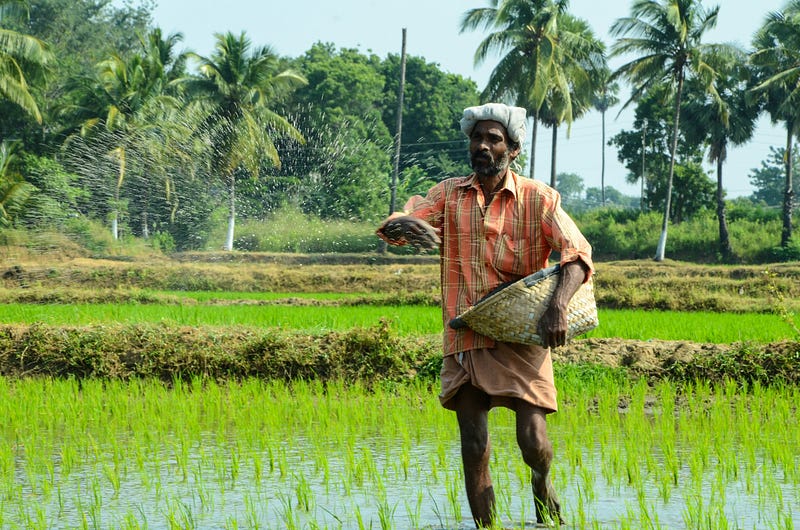Introduction
The climate crisis has become a major concern in the 21st century. The searing heat and the changing global weather pattern are threatening survival as well as dangerous for agriculture. The continuous climatic changes are adversely affecting agriculture. It not only destroys agricultural production but also hampers the cultivation of agricultural land. The formidable impacts of climate change have raised the eyebrows of many people around the globe. The repercussions of climate change on agriculture can put life on the state of survival. Therefore, it is crucial to deal with the impacts of climate change on agriculture before the time.

Impacts of climate change on agriculture
- Hampers natural processes such as pollination, and photosynthesis
The impacts of the climate crisis on agriculture are severe. It hampers natural processes such as the destruction of the pollination process. The warmer air is destroying the pollination process. It is because the seeds are dying before the process of pollination. Likewise, photosynthesis is impacted due to air pollution. The effects of photosynthesis lead to low-quality air. Moreover, the excessive reliance on artificial means invites climate crisis. The lack of natural ways of pesticide control mechanisms has destroyed land productivity. It also led to soil erosion and degradation. Alongside climatic conditions, human activities are also taking part in poor agricultural production. Industrialism has taken the place of green belts. It increases the production of greenhouse gases, thus creating climate change.
2. Slows down the economic cycle of the country
The impacts of climate conditions are dreadful and can cause low economic growth. The climate crisis slows down the overall economic cycle of the country. It is worrisome for the agrarian countries like Pakistan. It is because poor agriculture influences the GDP of the country, especially the agrarian countries. Being an agricultural country, Pakistan is facing food security and low economic growth in the agriculture sector. The depleted agricultural resources have destroyed the canvas of the prosperous country.
In addition to this, the lack of water management, poor governance, and mismanagement after climate catastrophe add fuel to the fire of the economy. For instance, the devastating effects of the 2022 floods have greatly impacted agriculture and human life. Many species were displaced and people migrated. It created hustle and bustle in the country. These natural disasters have reduced agriculture production. Even the farmers suffered from the shortage of food as well as shelter. The government has to manage its people and the economic loss. Therefore, they received aid from the neighboring countries. In the future, to avoid such a pathetic condition, the government should adopt a holistic approach to tackle climate change and its impact on agriculture.
Effective steps for the management of climate change and its impacts
- Adaptive measures along with the proper management of crisis
- Use of enhanced technology
- Adaptation of natural methods
Some effective steps should be taken by the government to reduce the impacts of climate on agriculture. Few adaptive measures along with the proper management of the climate crisis are given here. For the proper management of climatic crises and agriculture, climate-smart agriculture adaptation measures should be taken. Similar steps have been taken in Pakistan in the form of a Special Investment Facilitation Zone, SIFC. The collaboration with China in special economic zones acts as a ray of hope in pathetic conditions. There is also a need for a globalized land agriculture measure, which could be achieved via the transformation of agriculture. The hydroponic culture technique should be adopted to mitigate the climate crisis. The government should ensure these steps to mitigate the climate crisis in agriculture.
Moreover, innovative agricultural ways should be adopted. For instance, the use of digital tools advanced with the technology, so the climate crisis can be lowered. The use of artificial intelligence in crop surveillance and the measurement of weather patterns can help in agriculture production. Similarly, aerial sprays can help in the working of agriculture. If not, then natural ways like crop rotation should be adopted to mitigate climate change's impacts on agriculture.
Conclusion
To cap it all, the climate crisis should not be taken lightly. It has severely affected agriculture, which indirectly harms survival. If the proper management has not been done in time, humans might stick to the climate crisis and lose their survival. The only way to cope with the climate crisis and its impacts on agriculture is the use of advanced measures.



0 Comments
please do not enter any spam link in the comment box.